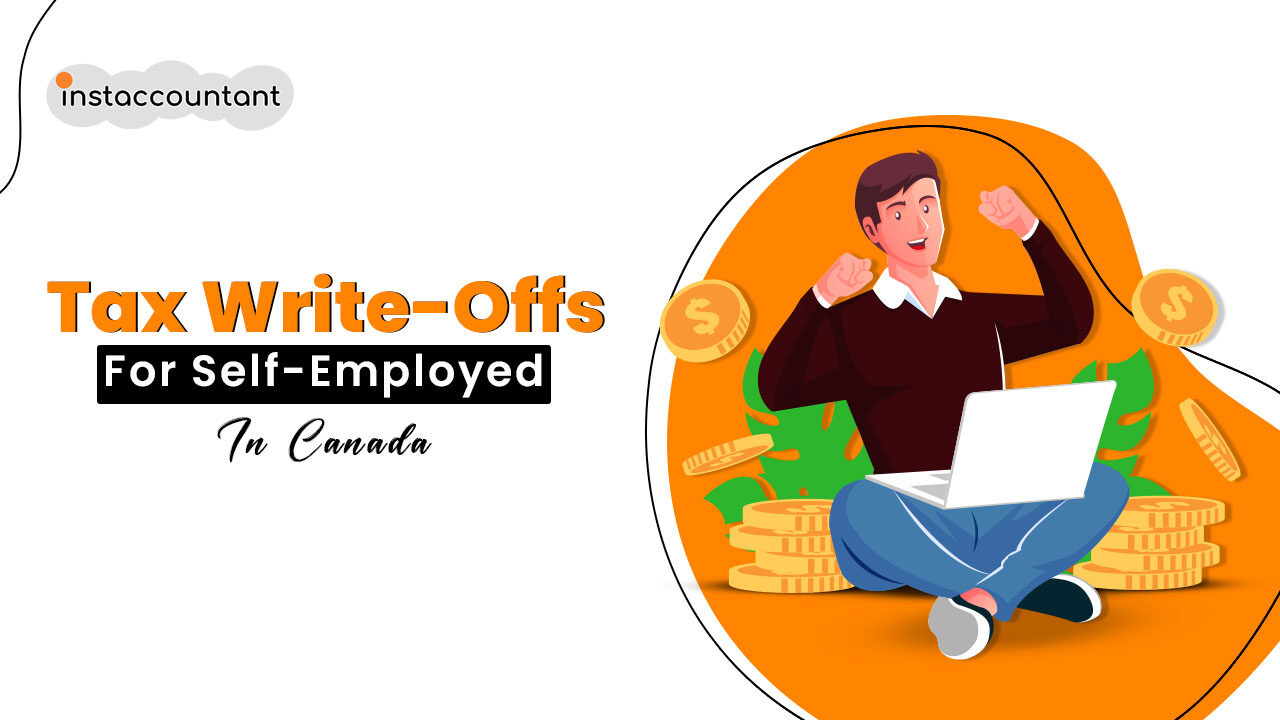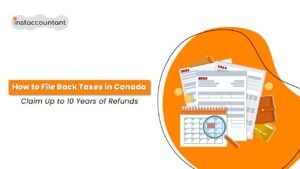Being self-employed in Canada comes with its perks, such as the freedom to work on your own terms, set your own schedule, and choose projects that align with your interests. However, it also means taking on more responsibility, including managing your taxes and maximizing your tax write-offs.
In this guide, we’ll explore the top 10 tax write-offs for self-employed individuals in Canada, helping you navigate the world of tax deductions and potentially save more on your taxes. Whether you run a small business, work as a freelancer, contractor, or drive for Uber/Uber Eats, understanding these deductions can make a significant difference in your tax savings. Let’s dive in!
Here are the top 10 self-employed tax deductions you can claim in 2025:
- Home office expenses
- Business travel expenses
- Vehicle expenses
- Education
- Bad debt
- Private health service
- Office supplies
- Advertisements
- Interest deduction
- Operating expenses
1. Home office expenses
As a self-employed worker, if you set up an office by renting a place or setting up space in your home, you can deduct the expenses under home office deductions. The mortgage, rent, utility, repair, maintenance, and office furniture expenses are deductible for office on rent or a home office.
For determining deductible home office expenses, calculate the square foot percentage of your home dedicated to your business tasks. Then you can use that percentage to calculate the deductions from your rent and other expenses.
If you run your business from a rented space instead of a home office, you can deduct this cost from your business taxes to reduce the amount of income that is subject to tax. To do this, make sure to keep a copy of your lease agreement and rental receipts as proof for the CRA.
2. Business travel expenses
The cost of trips made for your business meetings or other business-related purposes is tax deductible under the condition that it doesn’t involve any personal expense. The travel expenses including public transport expenses, hotel costs, and conference fees are 100% deductible. However, the business meals and entertainment expenses for the trip are 50% deductible. The expenses are deductible only for the self-employed individual and the business companion he must spend on.
3. Vehicle expenses
The cost of the vehicle used for your business transport or other business-related activities like for Uber or Uber Eats is also deductible. Although the deductible percentage is decided on whether the vehicle is used solely for business purposes or personal use as well.
The claimable vehicle expenses include:
- Fuel & oil
- Insurance
- Capital Cost Allowance (if you own)
- Lease payments (if you lease)
- Repairs & maintenance
- Parking fees
- Toll charges
- Vehicle registration fees
If the vehicle is used exclusively for business only then all of the cost for above mentioned expenses is deductible.
However, if the vehicle is used for both personal and business expenses the percentage of the expenses is only deductible depending on the use of the vehicle for business purposes. For example, if driving 20,000 kilometers annually and only 4000 kilometers for business-related activities then 20% of the vehicle expenses are deductible.
A logbook is required for claiming these tax deductions, including the record of the total annual mileage of your vehicle, and the business-allocated mileage for the whole year.
Tip: If you own your vehicle, you can deduct 30% of the vehicle’s cost each year (not the original purchase price) as depreciation using the declining balance method. This is called Capital Cost Allowance (CCA).
4. Education
Education is a requirement for professional development even for self-employed individuals. Money spent for educational purposes by a self-employed person is tax deductible. The deductible expenses include transport expenses, tuition, book costs, and extra expenses spent for study purposes.
The tax deduction applies only if the education is your current business-related, not if you are switching fields or enhancing extra skills.
5. Bad debt
Bad debt is the money owed to you by other people that they cannot pay back due to their financial conditions. It is one major problem faced by most businessmen and self-employed individuals in Canada. If you have lent some amount to a person and he went bankrupt and cannot pay back the loaned amount, then the amount is termed as bad debt.
CRA includes bad debt under deductible expense stating two conditions,
- Establish that an account receivable is a bad debt expense within the specific tax year.
- The bad debt has already been included in your receivable income.
If the conditions are met then you can claim the bad debts for tax write-offs.
6. Private health service
Typically employed persons have a part of their pay for private health service plans but when you are self-employed then this cost falls on you. Considering this, the CRA allows tax write-offs for such health plan premiums for self-employed individuals. Hence if you are paying for any such service, the expenses are tax deductible.
7. Office supplies
The office supplies expenses include the price of copy paper, pens, paper clips, books, and other professional instruments used for your business purposes or in your office. The cost for these items is included in tax deductions for a self-employed person.
8. Advertisements
The cost you pay for your business advertisement as social media ads, billboards, magazine ads, TV commercials, or mail fliers is all deductible under your self-employment tax deductions. However, the content must be Canada-specific and should fulfill Canadian ownership requirements. The cost of foreign campaigns in any medium is nondeductible.
9. Bank loan interest deduction
The interest on bank loans can be deducted if it’s for business-related purposes. If you borrow money for any business purpose then the interest on it is tax-deductible. However, if the borrowed money is used on expenses other than your business like buying property, a vehicle, or any other expense then the deductions will differ accordingly.
10. Operating expenses
CRA allows the operating expenses incurred in running the business by the owner to be eligible for tax write-offs. These expenses include the primary costs for your business operations including the rental space, office supplies, inventory, payrolls, repair and maintenance, and utilities. Capital expenses such as equipment, vehicle, and real estate aren’t included in operating expenses and are not deductible under operating expenses.
Conclusion
Keeping thorough records of your business expenses and seeking guidance from a tax professional is essential to ensure you’re making the most of your deductions while staying compliant with CRA regulations. Here’s to happy savings and a successful self-employed journey in Canada!




